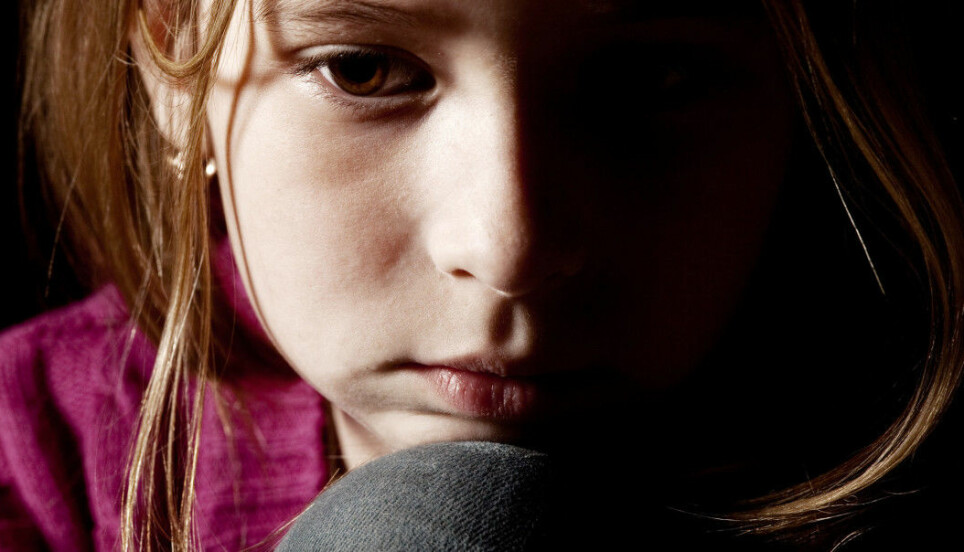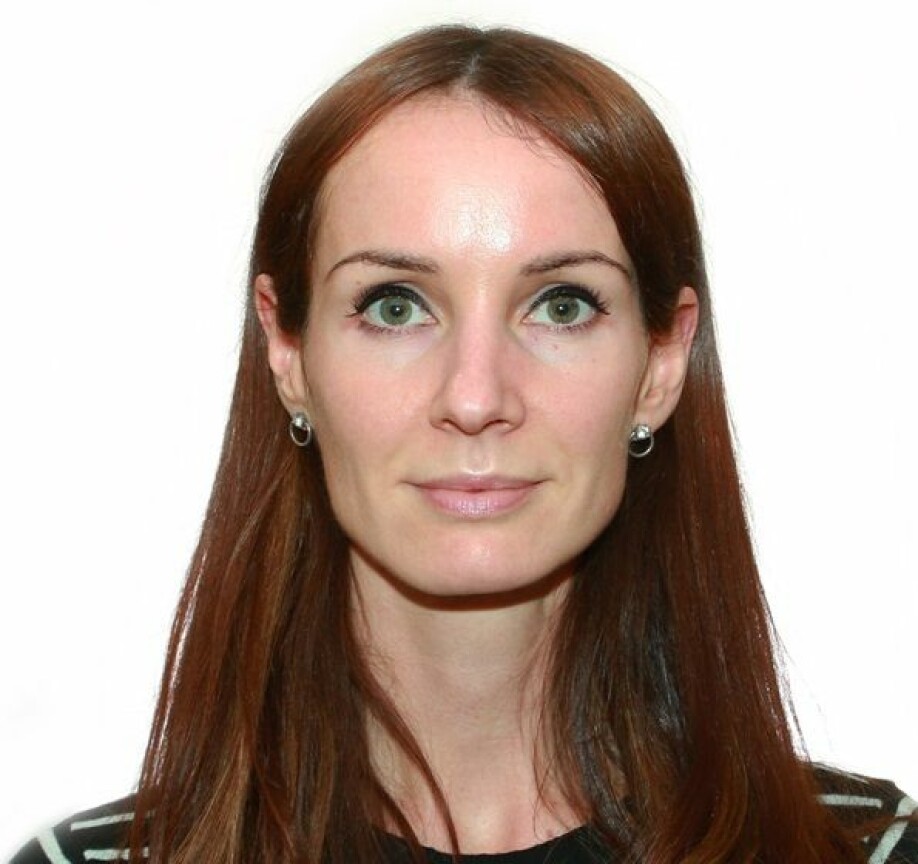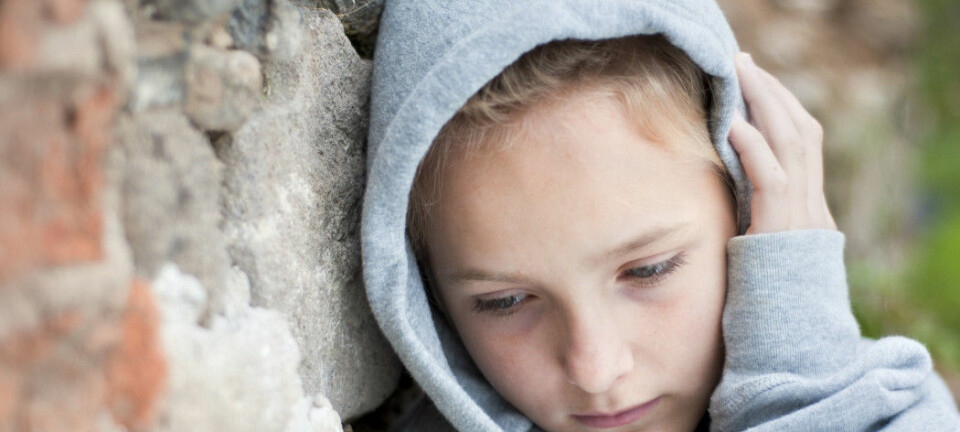
Violence and abuse in childhood linked to more stress hormones in pregnancy
New findings may help explain how the effects of traumatic events are passed on from one generation to the next. One psychologist says the findings are extremely interesting, but also very disturbing.
“Our findings may indicate that being exposed to violence and abuse early in life literally ‘gets under your skin’ and leads to changes during pregnancy,” says Iris Mulders Steine.
Steine is a psychologist at the University of Bergen who is currently on a research stay at the University of California Berkeley, USA. She has recently published a research article with colleagues from the USA, Canada and Australia.
The study confirms what has gradually become clearer and clearer in studies, namely that traumatic events in childhood can have a long-lasting effect on the body.

On the search for mechanisms
Previous studies have shown that people who have been exposed to traumatic events in childhood often have poorer health as adults.
Researchers assume that this connection is due to multiple changes in the brain's structure and function, the immune system, gene expression and the body's stress physiology. The latter is physical reactions that are triggered in the body when we are exposed to stress.
But researchers have long been on the lookout for a biological explanation for another phenomenon that has not been understood, namely that delayed effects from traumatic events in childhood can be transmitted from one generation to the next.
This study may be approaching an answer.
Researchers studied 1,300 pregnant women in Tennessee, USA. They clearly found that expectant mothers who had had traumatic events had an increased level of a particular hormone, pCRH.
The hormone plays a key role in stress physiology and has consequences for both mother and child.
Adult stressors not the same
The researchers studied stressful events at three different times in the women’s lives: in childhood, during pregnancy and as adults.
Women who had been exposed during adulthood to situations such as serious accidents, natural disasters, war or a sudden death among their loved ones didn’t have elevated levels of this hormone, they found.
They also examined the effects of partner violence during pregnancy and stress such as violent crime, related to the women’s neighbourhood. Here, too, they found no connection.
Only serious incidents in the woman's childhood had an effect.
These incidents included sexual abuse, physical violence or domestic violence. Each traumatic event was associated with an increase in the level of the hormone of 5.5 per cent.
Toxic stress
In the mid-1990s, American researchers conducted a study of 17,000 adults in the so-called Adverse Childhood Experiences (ACE) study.
This showed that the risk of poor health as an adult increases dramatically if a person has been exposed to difficult conditions growing up. These can include physical or mental violence or sexual abuse.
They also found poorer health among children who grew up with adults who abused drugs or had mental health problems.
Over time, many other studies have found the same thing. Researchers in this community describe it as toxic stress.
A possible biological explanation
The new study now joins a large number of other studies that demonstrate that traumatic events in childhood are linked to changes in stress physiology in adulthood.
The unique thing about Steine’s study is that she and her colleagues believe the pCRH system is a possible biological mechanism that can help explain how the effects of traumatic events can be passed on to the next generation.
“The study suggests that traumatic events in childhood can become biologically embedded in the women in the form of higher pCRH levels. This can affect prenatal physiology relevant for maternal and offspring health. This in turn can affect the next generation,” says Steine.
Can have many unfortunate consequences
A hormone called CRH plays a key role in regulating stress. Usually CRH levels are so low that it is barely possible to measure blood levels of the substance, but during pregnancy a type of the hormone called pCRH is produced by the placenta.
The levels of pCRH increase gradually from week 20 of pregnancy, especially during the last 5-6 weeks of pregnancy. Shortly after birth, the level drops again.
Increasing levels of the pCRH hormone are therefore completely normal during pregnancy.
But a large number of previous studies show that relatively higher levels can lead to unfortunate outcomes, says Steine.
Stress and fear in the child
Both the mother's health and the child's development can be affected by high levels of pCRH.
The mother can develop preeclampsia during pregnancy or postpartum depression afterwards, for example. Her risk of giving birth prematurely also increases.
The baby may have poorer growth and maturation during pregnancy.
If the levels of this hormone are too high, it can also lead to a higher degree of stress and fear in the baby.
A number of studies have previously examined whether being exposed to severely stressful or traumatic events affects the mother's pCRH level during pregnancy.
The results have been inconsistent, says Steine.
“One possible reason is that these studies only examined stressful and traumatic events that had occurred in adulthood and not in childhood,” she said.
Childhood is especially interesting
Researchers today know that violence and abuse in childhood can have long-term effects on the structure and function of the brain and on complex processes in stress response systems.
These systems develop in childhood, which makes them particularly sensitive to influences from the social environment.
“As a consequence, events that occur during childhood are especially interesting to investigate,” says Steine.
An important strength of Steine and her colleagues’ study is the large range of individuals involved.
The researchers also used the most advanced method to extract pCRH levels from blood samples, which ensures more accurate and reliable values, she said.
Researchers checked for many other factors that they know can affect pCRH levels. These include age, gestational week, smoking, pregnancy complications, BMI, number of previous pregnancies and depressive symptoms.

High international level
Dag Øystein Nordanger is a specialist in clinical psychology at RVTS Vest (Resource Centre on Violence, Traumatic Stress and Suicide Prevention, West) and a professor at Oslo Metropolitan University.
He says research on this topic is quite complicated.
“This is research at a high international level. Overall, the findings help fill in the gradually emerging picture about how the body ‘remembers’ childhood experiences of violence and abuse. These experiences can affect us regardless of whether we ourselves have concrete memories of what happened,” he said.
Researchers are beginning to get a better understanding about the connections between abusive childhood experiences and health in adulthood, Nordanger said.
“We’re seeing disturbing connections to a wide range of both mental and somatic disorders. A study like this contributes with a more sophisticated understanding of how these are related, and what are the underlying mechanisms,” he said.
Disturbing findings
The fact that the researchers in this study also documented the physical cost of stress early in life on a woman’s health during pregnancy is a new, important contribution to research on the subject, Nordanger said.
“That the study found indications of ‘direct’ transmission of a mother’s own painful upbringing to the foetus via a hormonal ‘imprint’ from the experiences is quite interesting, but at the same time also disturbing,” he said.
Needs action
Iris Steine and her colleagues believe their findings first and foremost emphasize how important it is to take measures to prevent and detect violence and abuse against children. This could be key in preventing many harmful long-term effects.

In addition to higher pCRH levels, childhood trauma can cause a large number of physical and mental health problems as well as negative socio-economic consequences, work disability and high costs to society.
Need to identify women who need support
It is important to raise awareness both in the public and among health professionals about the many harmful effects of violence and abuse in childhood.
Nicole R. Bush, the study’s project manager and a professor at the University of California San Francisco, wrote in an email to sciencenorway.no:
"A collection of research literature now speaks to the need to identify pregnant women who have experienced childhood violence and abuse. We should identify women who need extra support and supervision throughout their pregnancy and through the baby's first year of life," she wrote.
Translated by Nancy Bazilchuk
Reference:
Iris M. Steine et.al.: Maternal exposure to childhood traumatic events, but not multi-domain psychosocial stressors, predict placental corticotrophin releasing hormone across pregnancy, Social Science & Medicine, 2020.
———
Read the Norwegian version of this article at forskning.no
































